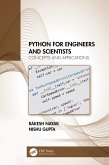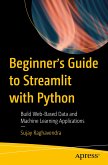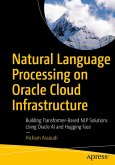You'll begin by gaining a fundamental understanding of Python programming, including data types, lists, dictionaries, and data structures. The book then delves into the world of reactive programming with Plotly and Dash, offering a hands-on approach to building interactive web-based dashboards. Next, you'll see how to work with online data, how to scrape and clean datasets, and keep files up-to-date.
The book also guides you through planning a dashboard prototype, outlining project tasks, trends, forecasts, spectra, and other design considerations. It concludes with a discussion of how the dashboard can be used for data visualization of real data, explaining the usefulness of tools such as spectra.
By providing detailed examples for download and customization, Prototyping Python Dashboards for Scientists and Engineers will equip you with the skills needed to jumpstart your own development efforts.
Dieser Download kann aus rechtlichen Gründen nur mit Rechnungsadresse in A, B, BG, CY, CZ, D, DK, EW, E, FIN, F, GR, HR, H, IRL, I, LT, L, LR, M, NL, PL, P, R, S, SLO, SK ausgeliefert werden.
Hinweis: Dieser Artikel kann nur an eine deutsche Lieferadresse ausgeliefert werden.









